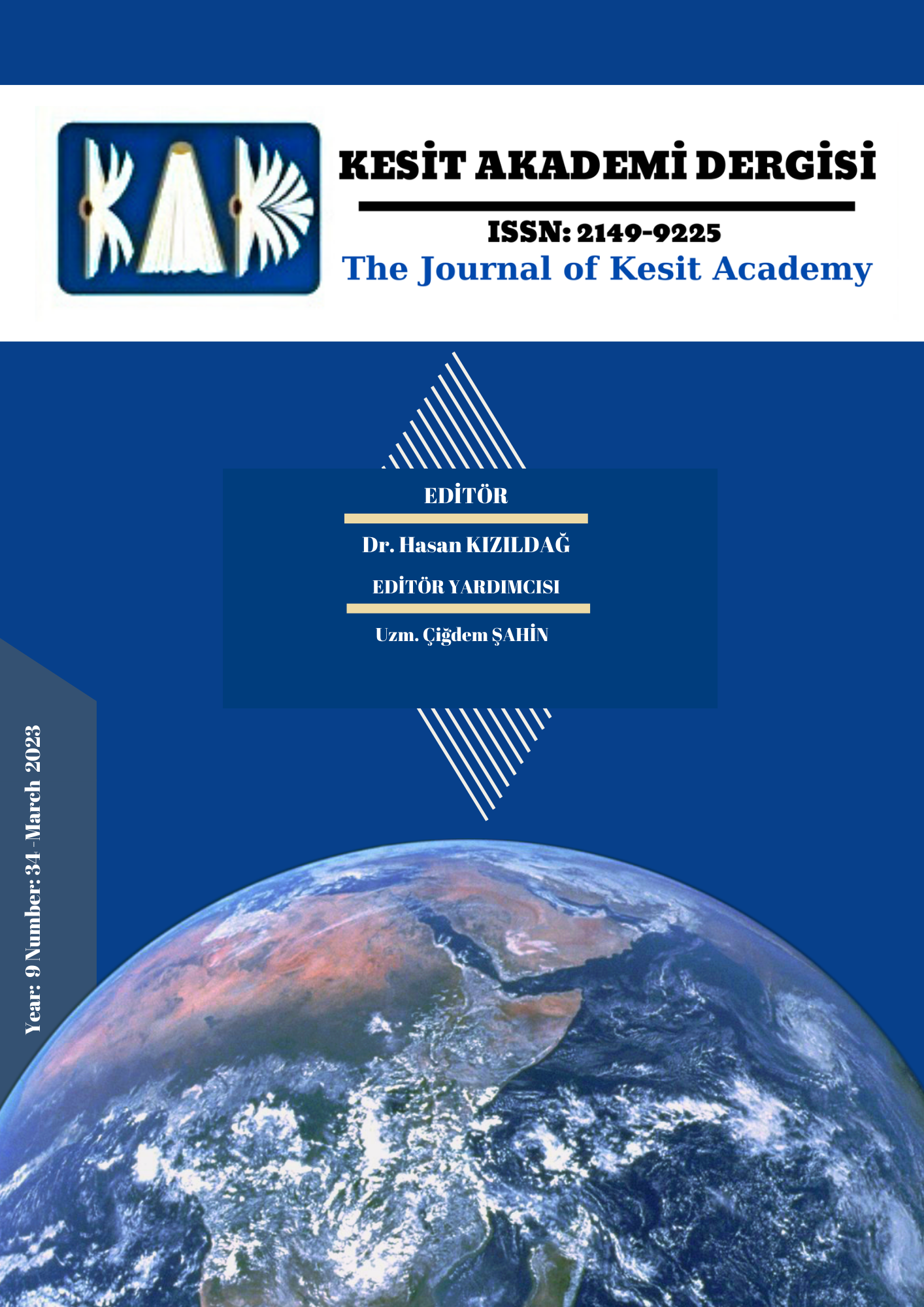Author :
Abstract
Türk romanının Tanzimat’la başlayan serüvenini dönüşen karakterlerle anlamlandırmak, yaşanan değişim sürecini açıklamayı kolaylaştırır. Bir anlatım ve eleştiri öğesi olarak ironi, dönüşmekte olan karakterlerin dramını içselleştirmeyi mümkün kılar. İroniyi bu yetkinliğe kavuşturan şüphesiz düşünceye atfedilen kıymetle çağdaş olmasından ileri gelir. Uyumsuzluk ve çelişkiye muhalif tavrı sebebiyle hikâye edilenin kırılım anını ifşa eden ironi, roman yazarının sıklıkla kullandığı bir anlatı türü olacaktır. Türk romanı arayışla başlayan yolculuğunu, değişim fasılalarında revize etmiş; roman karakterlerinin donanımı ve ironi kullanımıyla peyderpey gelişim skalasını güncellemiştir. Modern Türk romanında Cumhuriyet’e değin varlık gösteren edebi dönemler, arayışın numunelerini yansıtmayı ilke edinir. Tanzimat romanı gelenekten güç alarak gerçeğe yakın karakterlere hayat verirken, Servet-i Fünûn romancısı bu karakterin hissi yanını aktarır. Meşrutiyet ve sonrasında roman yazarının toplumsal olaylara eğildiği; bireyin ve sosyal hayatın tüm çelişkileriyle anlatıya dahil edildiği görülür. İlk örneklerinden itibaren mesaj verme dürtüsüyle romana, toplumu bilgilendirme ve yönlendirme amacı doğrultusunda, sosyal ve siyasal birtakım işlevlerin yüklendiği fark edilir. Haliyle bu tavır edebi ve estetik kaygıyı tali bırakacağından romanın gelişim sürecini yavaşlatmıştır. Buna rağmen Türk edebiyatına girdiği andan itibaren roman, içinden çıktığı sosyokültürel yapının ve edebiyat mantalitesinin bir taşıyıcısı konumundadır. Dolayısıyla romanın bir toplumsal dönüştürme vasfı kazanarak geleneksellik-modernlik çatışmasının ve toplumda epey zaman önce kıpırdanmaya başlayan Batılılaşma çabalarının üstlenicisi olmaya doğru yol tuttuğu ortadadır.
Keywords
Abstract
Making sense of the adventure of the Turkish novel, which started with the Tanzimat, with the transformed characters makes it easier to explain the process of change. As a narrative and critical element, irony makes it possible to internalize the drama of the characters that are transforming. What brings irony to this competence is undoubtedly that it is contemporary with the value attributed to thought. Irony, which reveals the breaking moment of the story because of its opposition to incongruity and contradiction, will be a type of narrative frequently used by the novelist. It revised its journey, which started with a search for a Turkish novel, at intervals of change; It gradually updated the development scale with the equipment of the novel characters and the use of irony. Literary periods until the Republic adopts the principle of reflecting the examples of his search to the contemporary Turkish novel. While the Tanzimat novel draws strength from tradition and gives life to lifelike characters, the novelist of Servet-i Fünûn conveys the emotional side of this character. During and after the Constitutional Monarchy, the writer of the novel focused on social events; It is seen that the individual and social life are included in the narrative with all its contradictions. It is noticed that some social and political functions have been attributed to the novel with the urge to give a message from its earliest examples, in line with the aim of informing and directing the society. As a matter of fact, this attitude slowed down the development process of the novel as it would leave the literary and aesthetic concerns secondary. Despite this, the novel has been a carrier of the socio-cultural structure and literary mentality from the moment it entered Turkish literature. Therefore, it is obvious that the novel, by gaining a social transformation characteristic, is on the way to being the undertaker of the traditionalism-modernity conflict and the Westernization efforts that started to stir in society a long time ago.





